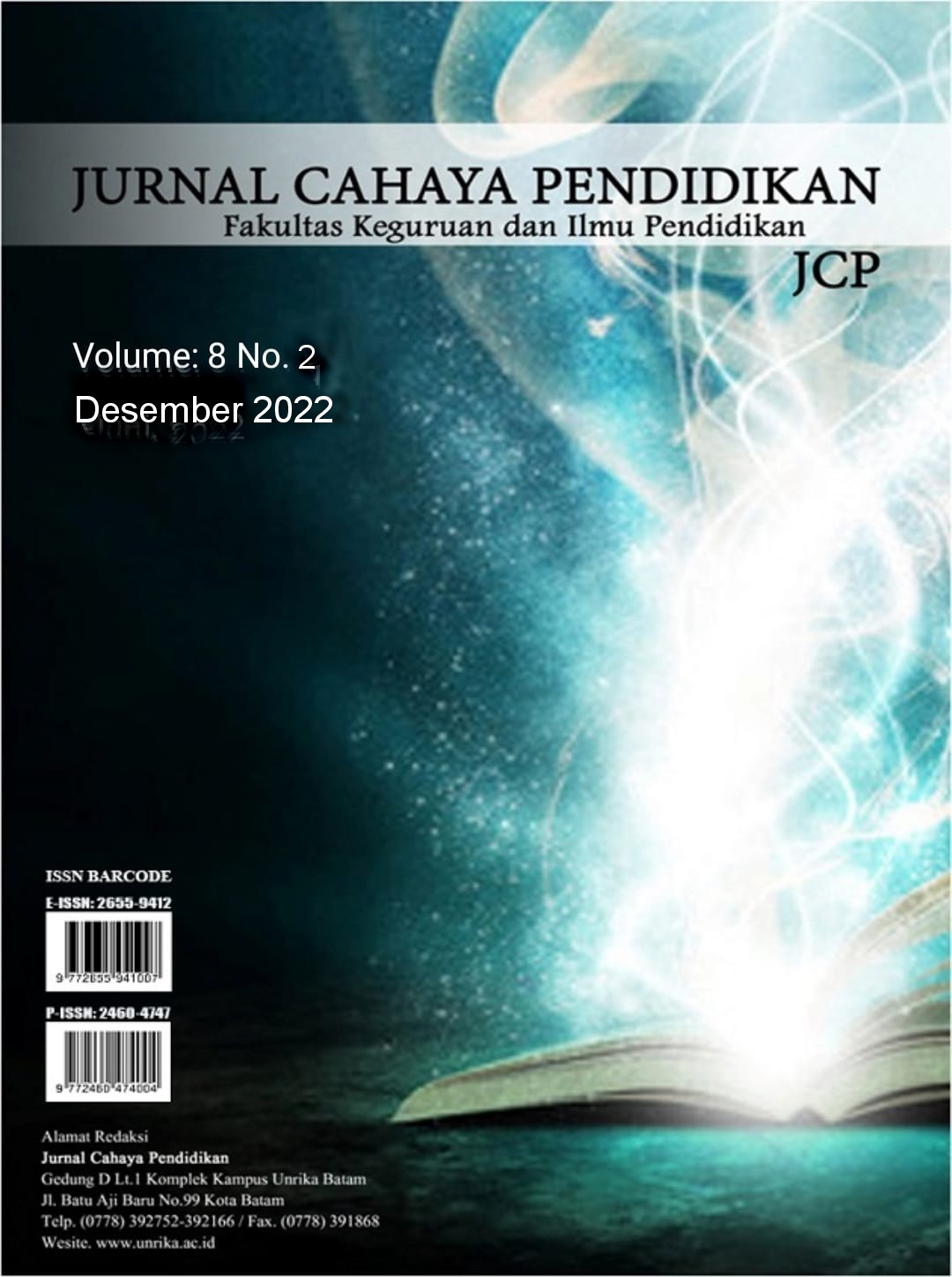Pembelajaran matematika berbasis Education for Sustainable Development dilihat dari perspektif sikap sosial siswa
Abstract
Abstrak
Penelitian ini bertujuan untuk mendeskripsikan hasil pembelajaran matematika berbasis ESD dilihat dari peningkatan sikap sosial siswa. Penelitian ini merupakan penelitian ekperimen, uji coba dilakukan di salah satu SMA di kabupaten lima puluh kota, Propinsi Sumater Barat. Subjek penelitian adalah siswa kelas XI pada SMA yang ditetapkan. Pada penelitian ini digunakan perangkat pembelajaran matematika berbasis ESD, meliputi: Silabus, RPP, bahan ajar, LKS, serta instrumen sikap sosial siswa. Hasil penelitian menunjukkan bahwa pembelajaran matematika berbasis ESD dapat meningkatkan sikap sosial siswa dengan kategori peningkatan sedang.
Kata Kunci: Education for Sustainable Development, Pembelajaran Matematika, Kemampuan Berpikir Kritis Matematis, Sikap Sosial
Abstract
This study aims to describe the results of ESD-based mathematics learning seen from improve students' social attitudes. This research is a experiment research, the product trial was conducted in one of the high schools in the district of fifty cities, West Sumatra Province. The research subjects were students of class XI at the designated high school. In this study, an ESD-based mathematics learning device, including: syllabus, lesson plans, teaching materials, worksheets, as well as instruments for students social attitudes. The results showed that ESD-baseed mathematics learning can improve students' social attitudes in the moderate improvement category.
Keywords: Education for Sustainable Development, Mathematics, Students Social Attitudes.
References
Ali, M. (2009). Pendidikan untuk Pembangunan Nasional. Bandung: PT Impeial Bhakti Utama.
Dikti.(2008). Rubrik Untuk Menilai Softskill. Gunadarma
Cobern, W. (1996). Constructivism and Non-Western Science Education Research. International Journal of Science Education, 4(3): 287-302.
Cunningham, D. (2006). Integrating Real-Life Data Analysis in Teaching Descriptive Statistics: A Constructivist Approach. The Constructivist. 17(1): 1-25.
Daly, H.E. et. al. (1991). For The Common Good: Redirecting the Economy toward Community, the Environment, and a Sustainable Future. Journal of Social Sciences. 11(1): 42-43
Hake, R.R.(2003). Analyzing Change/Gain Scores. USA, Dept. of Physics Indiana University.
Harel, G. (2008). What is Mathematics? A pedagogical Answer to a Philosophical Question. The Mathematical Assosiation of America
Kementerian Pendidikan dan Kebudayaan. (2016). Education For Sustainable Development (ESD). KNIU.
Kusumasari, N. (2015) . Lingkungan Sosial dalam Perkembangan Psikologi Anak. Jurnal Ilmu Komunikasi. 3(3): 21-39
Listiawati, N. (2013). The Implementation of Education for Sustainable Development by Several Agencies. Jurnal Pendidikan dan Kebudayaan. 19(3): 75-88
Ojimba, P. (2012). Mathematics Education for Sustainable Development: Implications for Scientific and Technological Literacy. Journal of Educational and Social Research. 2(7): 88-101
Permendikbud. (2014). Peraturan Menteri Pendidikan dan Kebudayaan RI Nomor 103, Tahun 2014, tentang Pembelajaran pada Pendidikan Dasar dan Pendidikan Menengah.
Pidarta, M. (2016). Studi Tentang Landasan Kependidikan. Jurnal Ilmu Pendidikan. 4(1): 25-38
Samsudin, M. A. (2020). Menumbuhkan Sikap Sosial dan Spiritual Siswa di Sekolah. Edupedia. 4(2): 49-69
Sarwono, S.W. (2002). Psikologi Sosial. Jakarta: Balai Pustaka
Shantini, Y. (2015). Penyelenggaraan ESD dalam Jalur Pendidikan di Indonesia. Pedagogia: Jurnal Ilmu Pendidikan. 13(20): 142-155
Sudjana. (2011). Metode Statistika. Bandung: Tarsito
Ugwa, K.A. (2012). Mathematical Modeling As A Tool For Sustainable Development In Nigeria. International Journal of Academic Research in Progressive Education and Development. 1(2): 76-90
Zulkardi. (2017). Merancang Uji Coba Realistic Mathematics Education (RME).Supremum Journal of Mathematics Education. 1(2): 41-52
Copyright (c) 2023 JCP (Jurnal Cahaya Pendidikan) Fakultas Keguruan dan Ilmu Pendidikan

This work is licensed under a Creative Commons Attribution-NonCommercial-ShareAlike 4.0 International License.

